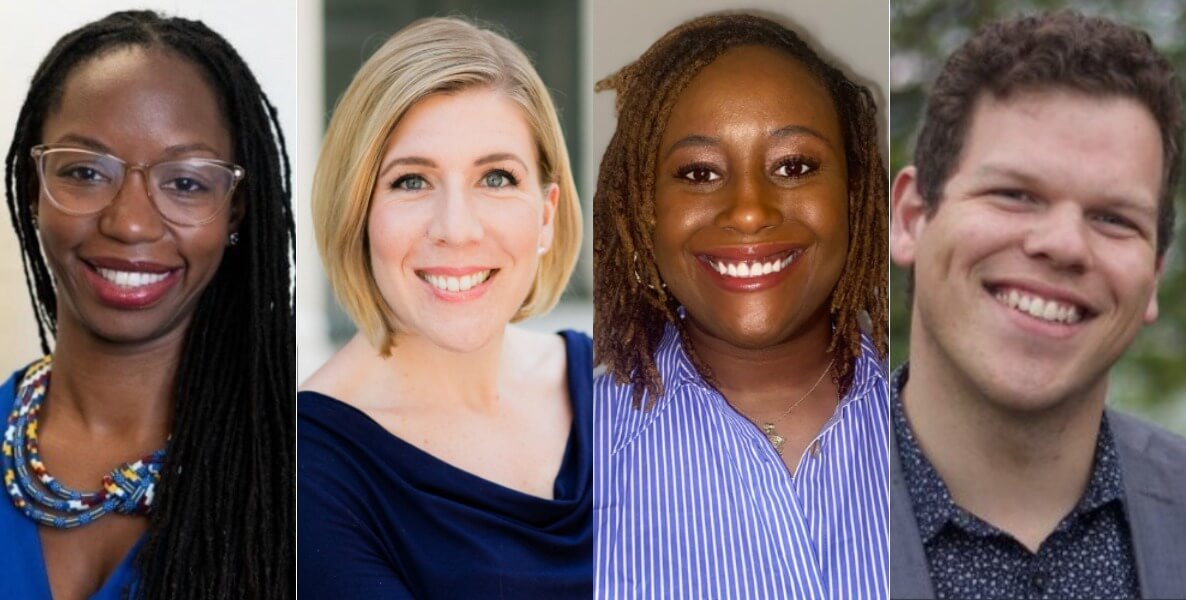In the fall of 1774, delegates from 12 of Britain’s 13 American colonies convened at Carpenters’ Hall in Philadelphia for what we now know as the First Continental Congress. Their task: to craft a unified response to stringent British retaliation for the infamous Boston Tea Party.
Emerging from the deliberations as a united front was no simple feat, however. The delegates had diverse backgrounds and wildly varying opinions on how best to confront the British. The revolutionary Samuel Adams of Massachusetts sought independence, while loyalists like Joseph Galloway preferred a more moderate approach. It took seven weeks, but they eventually worked out a strong response that pushed the colonies closer to war.
In this historic meeting, Michael Norris sees a lesson for today’s divisive political culture. Norris is the executive director of the Carpenters’ Company of Philadelphia, which oversees the Carpenters’ Hall historic site. “This is where the ‘united’ in ‘United States’ was born,” he says. “All through the colonial period, people had to get over some of their own issues to focus on what mattered to everybody.”
Like modern-day Americans, the members of the First Continental Congress had conflicting views on numerous pressing issues. However, they worked through their significant differences to arrive at a degree of consensus.
In today’s culture, neither social networks nor other forms of mass media push their audiences to engage with alternate perspectives. Norris compares that dynamic to Carpenters’ Hall in 1774, where delegates met in a physical space and felt far more pressure to confront their ideological differences respectfully.
“What we wanted to do with this event was really think about what people themselves can do in their own lives and in their own worlds, separate from politics, to come together.”
Motivated to return to this spirit of compromise, Norris worked with Lauren Cristella, chief advancement officer at the Committee of Seventy and president of the League of Women Voters of Philadelphia, to organize a panel discussion emphasizing the importance of unity and mutual respect in civic life. In particular, they want to encourage young people to seek out and navigate difficult political conversations.
The all-virtual event will take place on June 29 from 6 to 7pm. Panelists include Cristella, Elizabeth Clay Roy, president and CEO of the national civic-engagement organization Generation Citizen; and Jarrett Smith, programming co-chair at Young Involved Philadelphia, a nonprofit working to promote active citizenship among young people in the local area.
Morgan Robinson is the panel’s moderator. From her time as Young Involved Philadelphia’s president, Robinson knows that many young Americans’ passion for social justice makes them suspicious of calls for unity. However, she believes that a desire for unity underlies every movement for justice, even if we don’t usually think about it that way.
“In the end it’s still the same goal, the same city,” she asserts. “We want everybody to be able to live here peacefully and happily and safely.”
So how does she plan to distance this conversation from hollow “thoughts and prayers” rhetoric? Citing last year’s nationwide racial justice protests, Robinson says that civic unity means actions like showing up to provide water and snacks to peaceful protestors, even if you do not join the march yourself: “You don’t necessarily have to fully agree with a particular side to be there to say ‘You need your voice heard. I’m in a position to support your voice being heard.’”
RELATED: Check out our Do Something guides for ways you can get engaged
“What’s the alternative?” Cristella asks when confronted with the same question. Without tolerance and respect, she says, there are two Americas who view one another as the enemy. “When you’re talking like that, there’s no problem-solving,” she says. “In the worst version of it, you risk political violence and really unhealthy communities.” Unity, then, is an essential ingredient in healing our fractured political culture.
That said, the panel is not necessarily focused on fueling bipartisanship among politicians. Norris wants to spur a different conversation: “What we wanted to do with this event was really think about what people themselves can do in their own lives and in their own worlds, separate from politics, to come together.” He believes that attending town halls and school board meetings is an ideal way to nurture one’s skills at constructive debate and listening to alternate perspectives.
Cristella emphasizes the importance of a healthy media diet. Consulting a variety of diverse outlets rather than reductionist, partisan sources, she says, makes it easier to understand the nuances of different arguments, creating an opportunity for more productive conversation.
RELATED: NewsGuard combats fake news with ratings of thousands of news sites
“What do we actually mean by ‘civic unity’?” Norris asks. “How do you actually define it?” With that question guiding the panel, he is asking people to submit selfie videos explaining what civic unity means to them. A selection of these videos will be shown during the event.
According to Cristella, another critical application of civic unity is holding politicians to account. In today’s polarized environment, elected officials have little incentive to work across the aisle to solve policy problems. “They’re not going to do it unless we get loud about it as citizens and constituents,” she says. “Recognizing our power as citizens is an absolute key ingredient of that.”
Tuesday, June 29, 2021, 6–7pm, online; register here
Header photo shows (L-R) Elizabeth Clay Roy, Lauren Cristella, Morgan Robinson and Jarrett Smith




